Athlos Book Club: Book Recommendations for Educators from the Athlos Team
As part of our culture at Athlos Academies, employees participate in a book club. As a team, we read books that have a connection to education in general or the Athlos education model. These book clubs motivate us to discuss new pedagogy, clarify student needs, or spark reflection on personal or team challenges. Book discussions also provide opportunities for staff to get to know each other on a deeper level, which builds a sense of community and positive school culture. Here are five book recommendations from our team for anyone interested in education, character, leadership, and more.
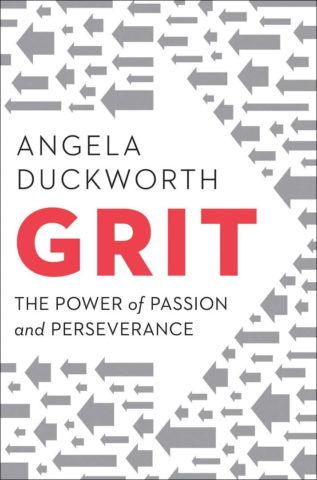 Grit by Angela Duckworth
Grit by Angela Duckworth
It seems as though everywhere you turn people are talking about grit – who has it, why it’s important, how to get it, etc. Much of the conversation seems misguided and the term misunderstood. Angela Duckworth – herself largely responsible for all the current hoopla – sets the record straight in her book Grit: The Power of Passion and Perseverance. Through telling her personal story and those of others who’ve experienced high levels of success, Duckworth hypothesizes that it is grit, more so than talent, that is responsible. Most importantly, Duckworth concludes that grit can be taught, a finding that has deeply influenced our work with students and the Athlos Performance Character program.
– Chris Bryner, associate director of Performance Character
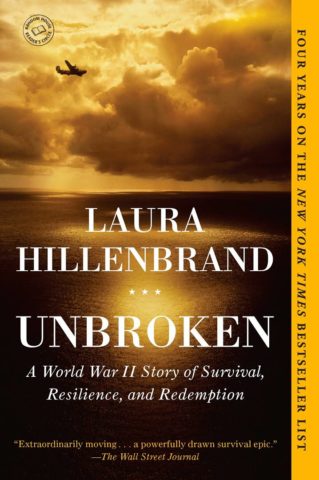 Unbroken by Laura Hillenbrand
Unbroken by Laura Hillenbrand
This book was fantastic because Louis Zamperini’s story is just so incredible. As a child of Italian immigrants, Louie appeared to have a bit of a chip on his shoulder growing up. But in reality, he had a really big heart and remarkable drive, which he channeled to become an Olympic athlete and then a U.S. Army airman in the Pacific during WWII. These accomplishments alone could have been made into an inspiring book, but Louie faced experiences throughout his life that I cannot even imagine, including shaking hands with Hitler, being lost at sea, and getting captured as a prisoner of war. I learned a lot about the cruelty of war, and the imagery conjured by Hillenbrand’s descriptions of POW camps was haunting and heartbreaking. Unbroken provides the opportunity to reflect on the power of optimism, resilience, family, and forgiveness. (P.S. There is a young adult version of Unbroken that could be used to spark discussion with students!)
-Amy Dolan, education specialist
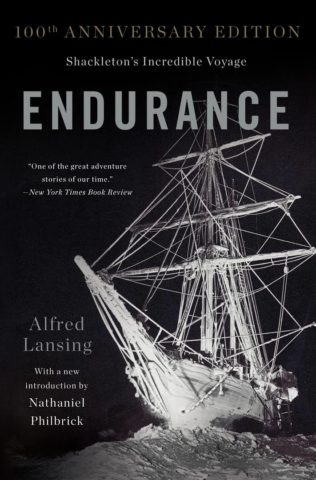 Endurance: Shackleton’s Incredible Voyage by Alfred Lansing
Endurance: Shackleton’s Incredible Voyage by Alfred Lansing
Our existence in today’s world can be relatively challenging at times. But is it trapped in the ice-shelves of the Antarctic with only your men, dogs, and limited supplies as you race against time and the elements to survive challenges? In his book, Alfred Lansing compiles the journal and diary entries of the men of Shackleton’s trans-Antarctic expedition for the reader to relive this harrowing tale of survival and perseverance.
-Ian Woods, school nutrition specialist
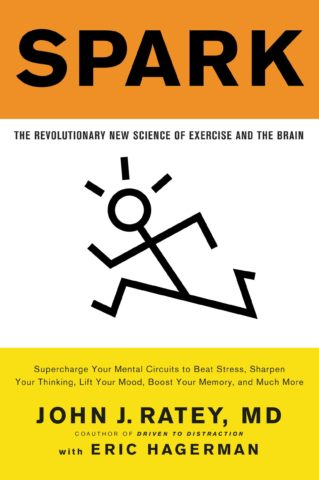 Spark by John Ratey
Spark by John Ratey
Dr. Ratey brings the research of neuroscience to the mainstream and pushes past the often saturated emphasis exercise has to weight loss and physical appearance. He challenges the reader to think more holistically about the mind-body connection and explains how aerobic activity has a profound impact on our body’s ability to thrive. Dr. Ratey calls out the mismatch that seems to be in place between our lifestyle and our genes and describes ways to increase our capacity as individuals by embracing a life full of movement.
-Chandler Herdt, director of Healthy Body
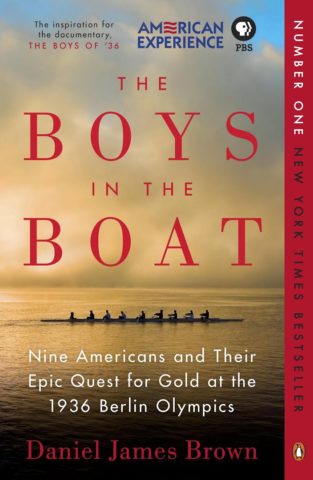 Boys in the Boat by Daniel James Brown
Boys in the Boat by Daniel James Brown
Boys in the Boat is the quintessential book on teamwork. It is the non-fictional account of the 1936 U.S. men’s Olympic rowing team that banded together, overcame overwhelming odds, and won a gold medal at the Berlin Olympics. These ordinary men demonstrated that teams who build trust, commitment, and vision can accomplish remarkable results. Their story of grit and tenacity excited a nation mired in the Great Depression and continues to inspire those who read it today. It is pertinent to any sort of team—athletic, work, or otherwise— looking to get in unison and “start rowing together.”
-Camille Wells, chief community relations officer
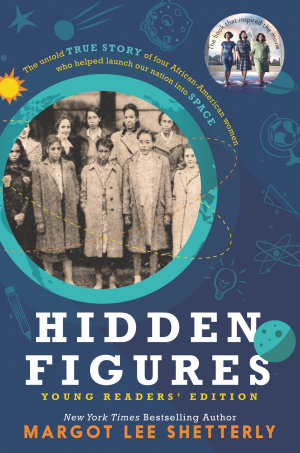 Hidden Figures by Margot Lee Shetterly
Hidden Figures by Margot Lee Shetterly
I would absolutely recommend this book. The detail around the cultural and historical significance of the story was excellent. My favorite piece of the book is that it is an untold story of a group of incredibly brilliant African American females in an era where they faced not only racial but gender discrimination as well. These women in Hidden Figures were brave, bold, and had some serious grit. If you are looking to be inspired, this book is a great place to start. If you know women or girls who are driven by the field of science and they want to add to their arsenal of amazing female mentors who have paved the way, this book is a great place to start. If you are willing to engage with the power of incredible people showing grit and maintaining integrity through even the toughest of times, this book is a great place to start. Thank you to the hard work of Margot Lee Shetterly in making this story available to the masses. Bravo.
-Caitlyn Scales, school growth coordinator
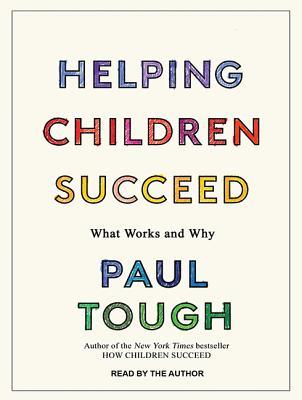 Helping Children Succeed by Paul Tough
Helping Children Succeed by Paul Tough
If you only read one book about education, make it Helping Children Succeed by Paul Tough. In this book, Tough uses the latest research in education and neuroscience to show that we can’t explicitly teach character traits or non-cognitive skills such as “grit” or “self-control.” Instead, we as educators must provide the right environment and conditions for students to develop and practice these skills.
We can’t improve the lives of underprivileged kids or close the achievement gap by talking about these traits and skills, but by creating opportunities for students to learn how to manifest them and thus learn to succeed. Tough explores the realities of students who come from adversity, who have dealt with trauma, who do not have secure attachments, and shows us the path towards creating lasting change in the quality of their lives.
-Sarah Ross, chief academic officer
The Road to Character by David Brooks
David Brooks is a columnist I have always admired, and I had the opportunity to hear him speak at Boise State University last fall about this book. The Road to Character asks us to reflect on our definition of success and to cultivate our “eulogy virtues” not just our “resume virtues.” Through the profiles of remarkable figures, he reminds us that our lives are given meaning through our commitment to our families, our vocations, our faiths/philosophies, and our communities. It is a book I will return to again and again.
-Giselle Isbell, director of Prepared Mind
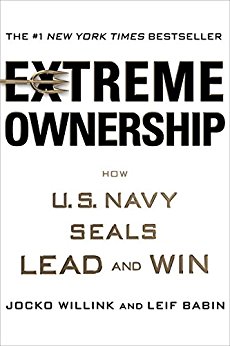 Extreme Ownership by Jocko Willink and Leif Babin
Extreme Ownership by Jocko Willink and Leif Babin
I love a book that shows real-world application and implementation to a leadership philosophy. Extreme Ownership dives into how important and impactful it is for every member to own their part of the mission. Whether you are a manager or a team member, everyone must have a clear vision of the goal and be on the same page to ensure success!
-Molly Loveless, school launch specialist
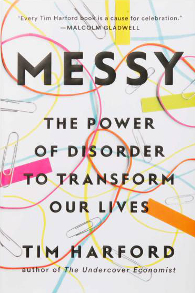 Messy by Tim Harford
Messy by Tim Harford
In an inspiring book about the power of messiness, Tim Harford discusses everything from unconscious thought, to team dynamics, to the physical environment people work in and how messiness in each of these situations can be a driver behind creativity and innovation while order can stifle it. He uses worldwide examples of how various companies and organizations have or have not done a good job doing this. The ideas presented in this book are ones any company, organization, school, or individual looking to embrace messiness and push forward to a culture of creativity and innovation can benefit from.
-Peter Verdin, associate director of Healthy Body
I am Malala by Malala Yousafzai
I am Malala is a memoir about the testament of courage by a young woman who stood up in the face of adversity to push for human rights for all and now has dedicated her life to education for women. This book and the documentary, He Named Me Malala brought tears to my eyes to realize the inequity in education in the United States and around the world. I would highly recommend this book to all educators to realize the daily impact education has on every child’s life. Malala’s memoir makes me passionate about what we do at Athlos Academies to create lifelong learners who lead healthy, active lifestyles.
-Rachel Flachbart, technical writer/policy analyst
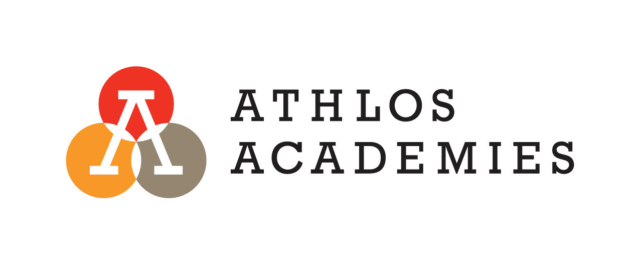
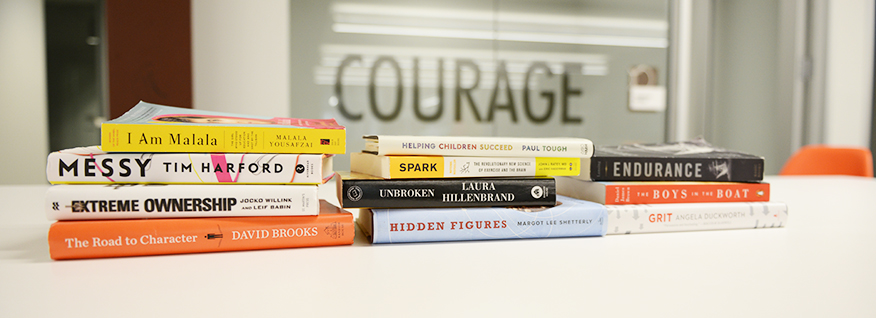
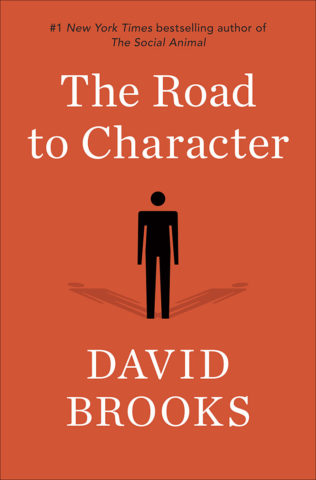
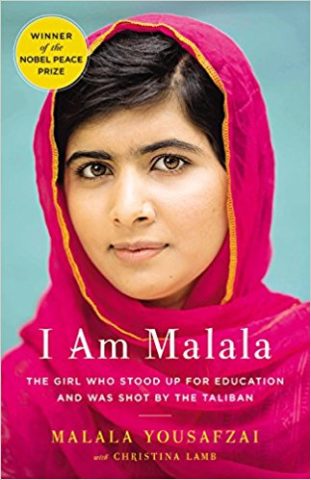



Leave a Reply
Want to join the discussion?Feel free to contribute!